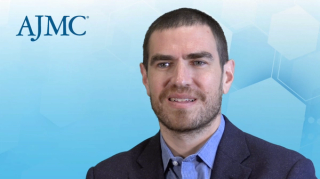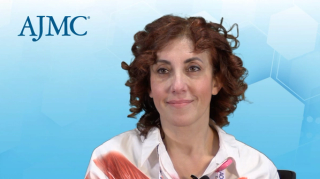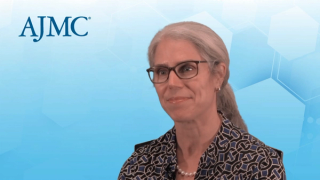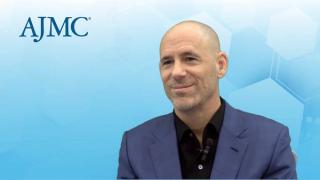
Oncology
Latest News
Latest Videos

More News

Mila Felder, MD, FACEP, emergency physician and vice president for Well-Being for All Teammates, Advocate Health, highlights strategic approaches for incorporating well-being into a postpandemic oncology workforce.

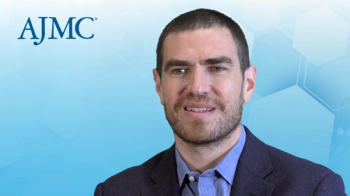
Will Shapiro, vice president of data science at Flatiron Health, discusses how the practice is using large language models (LLMs) to increase efficiency, while ensuring there are frameworks set for safety and quality.

Mila Felder, MD, FACEP, emergency physician and vice president for Well-Being for All Teammates, Advocate Health, shares the importance of incorporating a culture of well-being within oncology practices.

Accelerated biological aging may be behind why some types of cancer are on the rise in young adults, researchers find.

Mila Felder, MD, FACEP, emergency physician and vice president for Well-Being for All Teammates, Advocate Health, shares insights on how peer support groups can help manage psychological and emotional distress amid a national drug shortage.

FDA granted accelerated approval to trastuzumab deruxtecan-nxki for adult patients with unresectable or metastatic HER2-positive solid tumors who received prior systemic treatment and have no satisfactory alternative treatment options.

Will Shapiro, vice president of data science at Flatiron Health, explains the different ethical challenges associated with various forms of artificial intelligence models used in oncology care.

Among adults with newly diagnosed cancer, rates of low-value cancer services persisted throughout the COVID-19 pandemic in areas ranging from peridiagnosis imaging to end-of-life care.

A lawsuit that followed a health system revoking community oncologists' hospital privileges was the jumping off point for a discussion of how to manage this key relationship.

Explainability, consent, and responsibility are noted as challenges that may hinder implementation of artificial intelligence (AI) in cancer care, according to a new study.

Posters presented at the American Academy of Dermatology 2024 Annual Meeting identified significant health disparities among patients living in rural areas and those with skin of color (SOC).

The FDA has approved tislelizumab-jsgr (Tevimbra) for single-agent use in adult patients with unresectable or metastatic esophageal squamous cell carcinoma following prior systemic chemotherapy that did not include a PD-1/PD-L1 inhibitor.

Stress has potential links to worse outcomes in cancer, such as decreased quality of life and greater risks of disease progression and metastasis. There is a complex mix of emotions patients with cancer experience.

Modeling estimates indicate that annual breast cancer screening starting at age 40 years provides the greatest benefit to women and reduces risk per examination.

The session at ACCC's 50th Annual Meeting & Cancer Center Business Summit featured discussions on patient navigation, addressing patients' sexual health, needs of LGBTQ+ patients, and more.

Among a cohort of insured patients with cancer, the median total monthly cost of oral lenvatinib was $17,253, and 75% of patients paid $100 or less out of pocket per month for the drug.
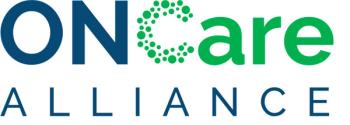
ONCare Alliance will be led by 2 of the leading women in community oncology, cochairs Barbara McAneny, MD, of the New Mexico Cancer Center, and Sibel Blau, MD, of Northwest Medical Specialties, PLLC, of Puyallup, Washington.
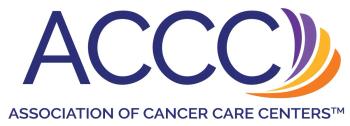
Quality Improvement (QI) projects require a series of distinct steps and timely data collection that will allow clinics to see if changes are yielding results, a consultant told attendees at a preconference workshop at ACCC.

Patients with cancer express shock and anxiety over the recent ruling by the Alabama Supreme Court regarding frozen embryos; doctors are beginning to charge fees for administrative tasks; some universities are implementing accelerated nursing programs to help with the shortage.

A nationwide analysis reveals a significant drop in cancer diagnoses, highlighting an urgent need for a catch-up in screening efforts.

Researchers have identified a surge in breast cancer rates among young women and racial disparities across age groups.
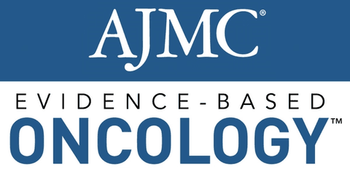

Chandler Cortina, MD, MS, FSSO, FACS, is assistant professor of surgery and breast surgical oncologist at Froedtert & the Medical College of Wisconsin. His current research focuses on breast cancer risk not only in general but also among transgender and gender-diverse populations.

The increased risk is likely due to the underlying cancer disease and adjuvant treatments, researchers find.









